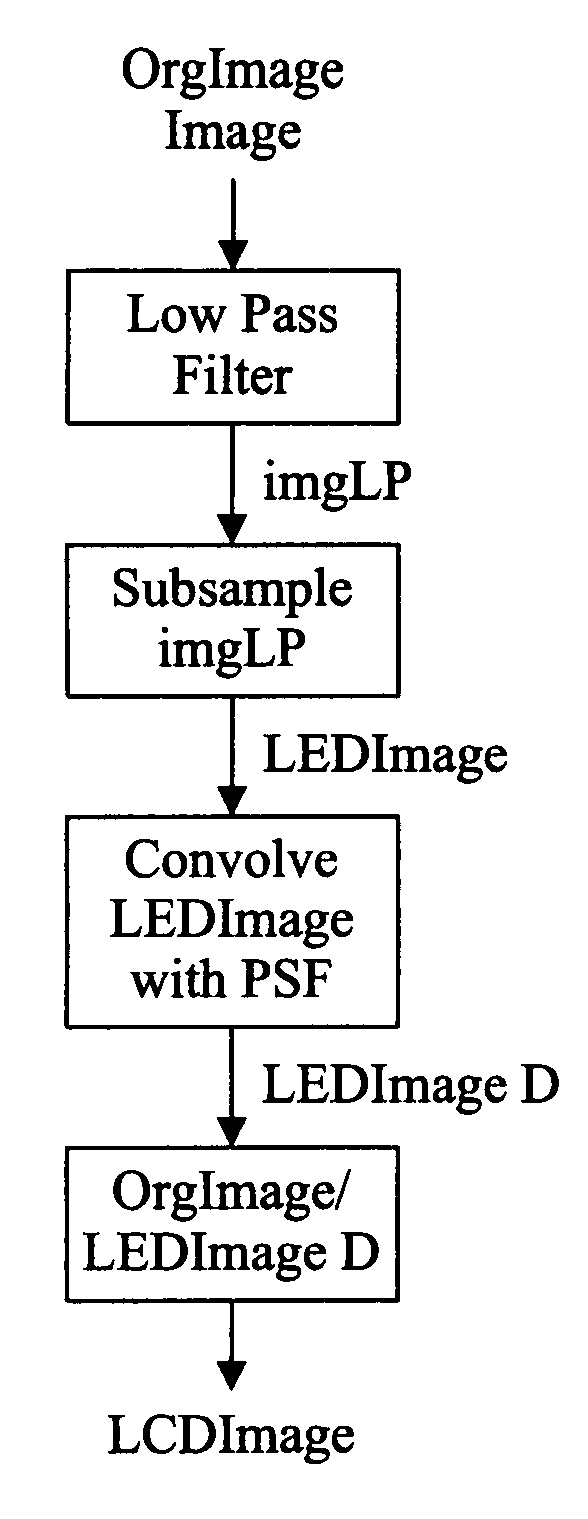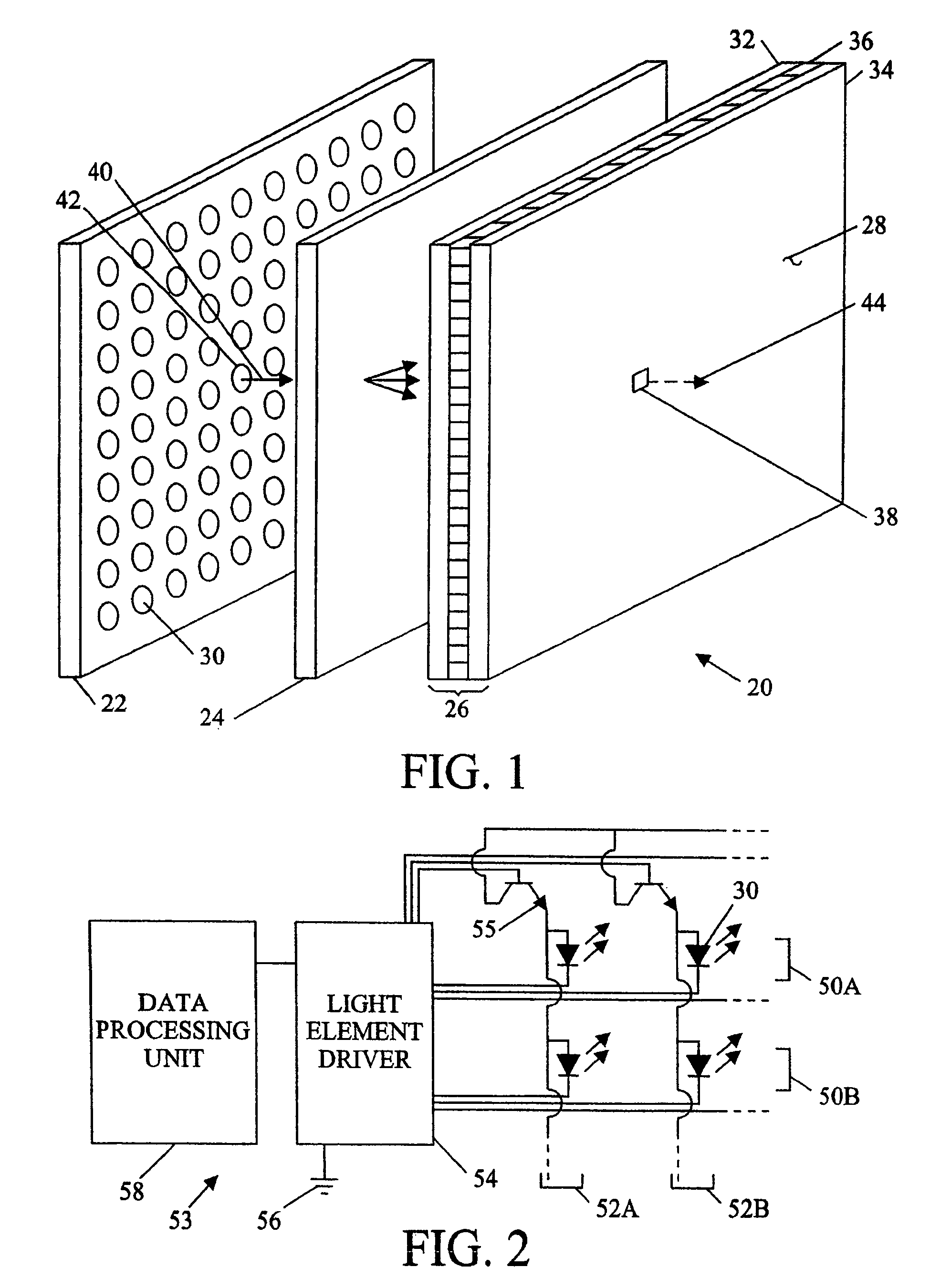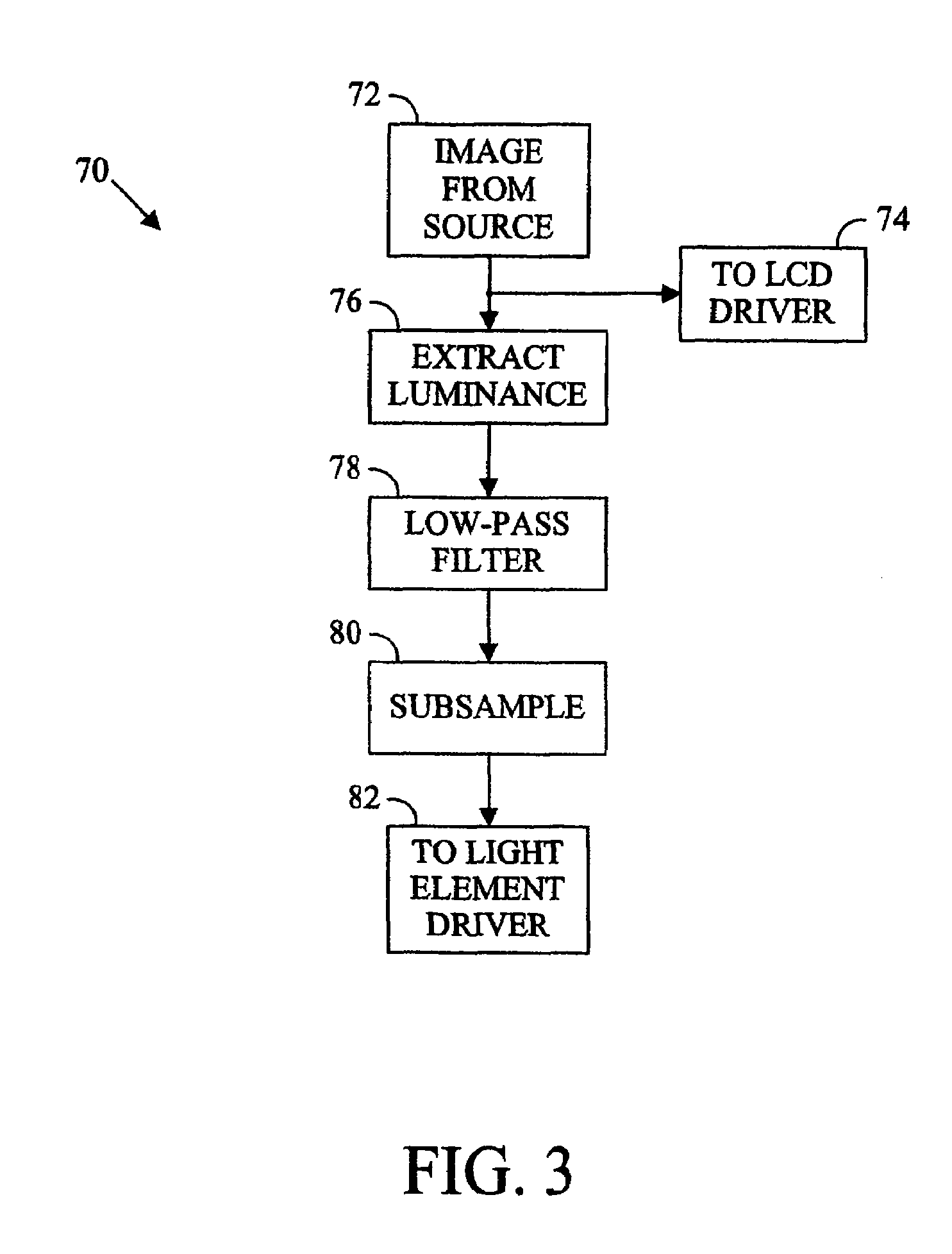Liquid crystal display with filtered black point
a liquid crystal display and black point technology, applied in the field of backlit displays, can solve the problems of limited ratio of luminance of dark and light areas or the dynamic range of an lcd, and the image displayed on this type of panel may be difficult to see,
- Summary
- Abstract
- Description
- Claims
- Application Information
AI Technical Summary
Benefits of technology
Problems solved by technology
Method used
Image
Examples
Embodiment Construction
[0026]Referring to FIG. 1, a backlit display 20 comprises, generally, a backlight 22, a diffuser 24, and a light valve 26 (indicated by a bracket) that controls the transmittance of light from the backlight 22 to a user viewing an image displayed at the front of the panel 28. The light valve, typically comprising a liquid crystal apparatus, is arranged to electronically control the transmittance of light for a picture element or pixel. Since liquid crystals do not emit light, an external source of light is necessary to create a visible image. The source of light for small and inexpensive LCDs, such as those used in digital clocks or calculators, may be light that is reflected from the back surface of the panel after passing through the panel. Likewise, liquid crystal on silicon (LCOS) devices rely on light reflected from a backplane of the light valve to illuminate a display pixel. However, LCDs absorb a significant portion of the light passing through the assembly and an artificial...
PUM
 Login to View More
Login to View More Abstract
Description
Claims
Application Information
 Login to View More
Login to View More - R&D
- Intellectual Property
- Life Sciences
- Materials
- Tech Scout
- Unparalleled Data Quality
- Higher Quality Content
- 60% Fewer Hallucinations
Browse by: Latest US Patents, China's latest patents, Technical Efficacy Thesaurus, Application Domain, Technology Topic, Popular Technical Reports.
© 2025 PatSnap. All rights reserved.Legal|Privacy policy|Modern Slavery Act Transparency Statement|Sitemap|About US| Contact US: help@patsnap.com



